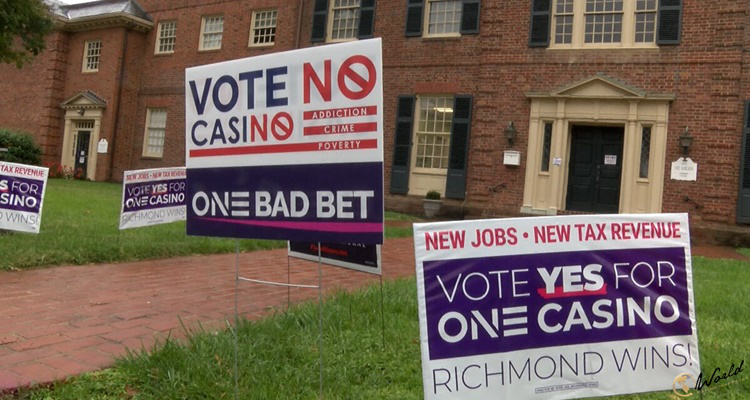The Richmond drama doesn’t seem to be over soon, according to the recent news. After a series of disagreements and different opinions among interested parties, a Richmond Circuit Court decided to hear different opinions one more time and voted in favor of a new referendum.
Waiting for referendum:
The City of Richmond filed a petition asking for another casino referendum, and after the approval, it was decided that it would be held on November 7th.
On August 15th, Richmond Lodge No. 1 of the Good Lions, Inc., a local nonprofit organization, filed a motion to stop the referendum from happening. The issue in question was whether the government should allow a new casino to be built in the Southside of Richmond, and back then, the referendum was suspended.
However, the casino advocates weren’t satisfied with the decision and didn’t want to give up without one last battle. William Marchant, a judge in Richmond Circuit Court, claimed he’d file a ruling on the motion on August 23rd.
The destiny of the new casino is still unknown since both the city and the organization have three days after the suspension to think about their arguments and prepare the cases in favor of both opinions.
As its reasons to oppose the referendum, the nonprofit listed that the court’s decision was unconstitutional. However, there are reasons closer to home as well – they’re afraid that their business will be affected since they host charitable gaming events in the city.
The first words about the new Richmond casino started spreading in 2021, and the main reason in favor of it was creating jobs for residents, since the casino would generate about 1.300 new jobs.
Reasons behind the decision:
Marchant listed two reasons for such a decision and explained that the judicial proceeding isn’t to be intervened by anyone, and that the court couldn’t connect the potential harm to Good Lions with the decision.
He claimed in the ruling: “This judicial proceeding in which Good Lions seeks to intervene is merely the last step in an administrative process for the placing of a referendum on the ballot. It is not an adversary proceeding with adverse parties and issues to be litigated. There are no plaintiffs or defendants, there is no contest of rights, and as such, the Court finds that this limited non-adversarial judicial proceeding is not amenable to intervention by a party seeking assertion or protection of claims or rights. Further, the Court finds that Good Lion has not identified any ‘right’ involved in this limited judicial proceeding.”



